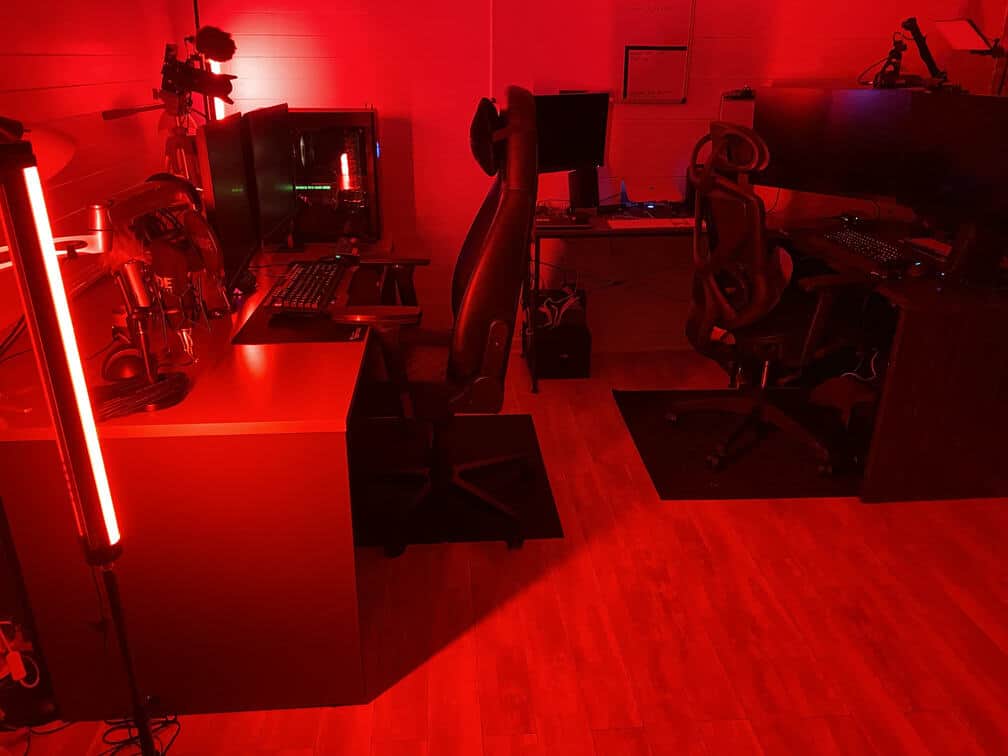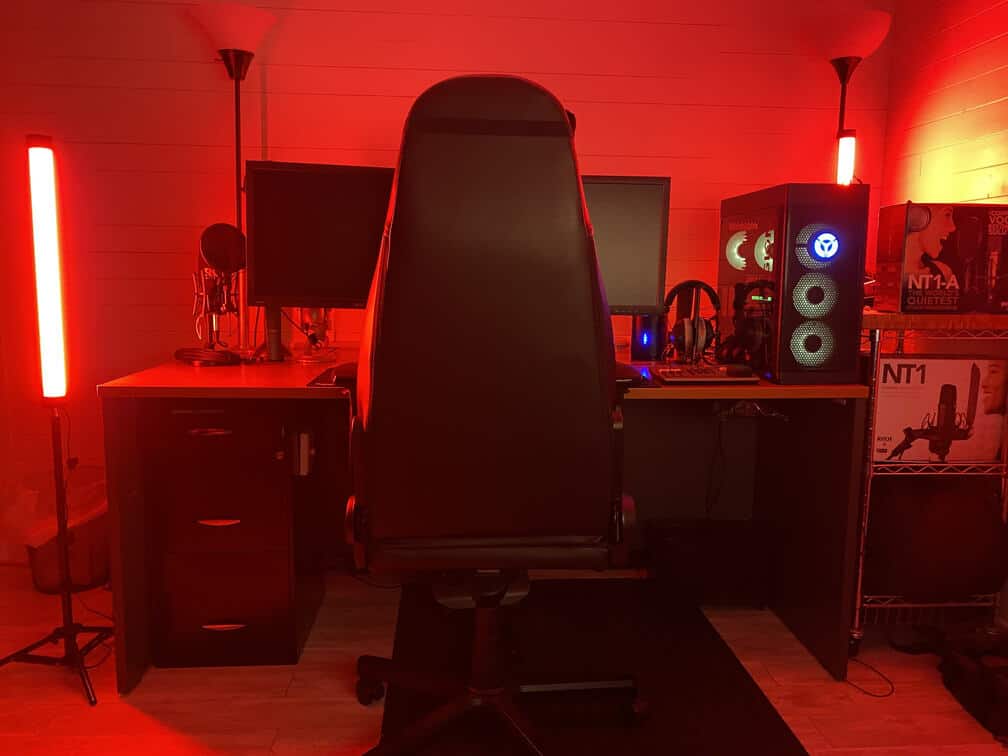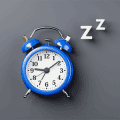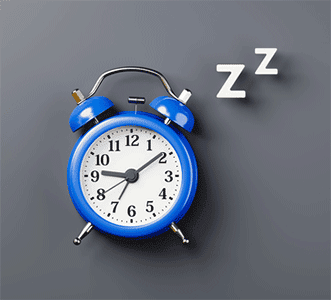The most important thing you can do to boost your productivity and creativity is to sleep well! Research shows that sleeping well boosts both!
It is essential to get enough sleep. Without it, you cannot survive or function properly. The body rests while you sleep. The brain is a whirlwind of activity. In addition to organizing the day's events, it stores them to be retrieved later. Also, it achieves housekeeping by clearing away waste that accumulates throughout the day. Your brain cleans itself more efficiently when you sleep deeply. For optimal brain function, adults need between seven and nine hours of sleep, but many of us do not get enough of it. Too little sleep impairs your memory and concentration.
You may also feel moody and irritable and be more prone to anxiety and depression. Without sufficient sleep, one is also likely to be impaired in judgment and performance, as well as be more likely to suffer an accident or injury. If you are worried about not getting enough sleep, practice good sleep hygiene, turn off electronics an hour before bedtime, and relax before going to sleep.
When it is getting close to bedtime, it is advisable to avoid stimulants like caffeine and alcohol, as well as eating heavy meals right before bed. Whenever possible, go to sleep at the same time each night, and get up at the same time every morning.
It is proven that the more sleep you get at night the better your brain will function, and the better you will feel when you wake up in the morning. During the night, make sure your bedroom is as quiet, cool, and dark as it can be, and be sure to get moderate exercise throughout the day, which can help with both sleep and overall wellbeing.
Better Sleep...If I offered you a pill that boosted productivity, increased fat loss, and decreased your risk of developing some diseases, you probably would take it right now. A good night's sleep is as close as you are going to get to a magic pill.
Top things to do for better sleep
First and foremost, exercise. Exercise improves sleep quality and increases sleep duration, which may sound crazy to some. You should walk for at least 10 minutes briskly in the morning, evening, and night. Whatever works for you. Exercise regularly.
Diet is second on the list. Your first priority should be to avoid eating too close to bedtime since eating too close to bedtime can stimulate your pancreatic juices and make you feel really uncomfortable. Aside from that, you should avoid spicy foods, overly citric foods, and one thing that a lot of people do before bed, which is drinking alcohol, because it may help you fall asleep, but will degrade your quality of sleep. It will also make it harder for you to wake up in the morning.
The third thing to do is to take a nap. That's a fact. Although naps are refreshing, they are also capable of giving you a boost of energy. You can keep them between 15 and 30 minutes, however, and they'll decrease your sleepiness, which is a good thing, but you'll have trouble falling asleep at night because you're not sleeping. If you can, avoid taking a nap since caffeine has a half-life of six hours, which means that it will take 12 hours for it to completely leave your body. Do not forget that caffeine is diuretic. That is why it makes you urinate.
You should dim your lights. It is recommended to reduce the amount of blue light exposure you receive toward the evening when you have bright lights that affect the melatonin hormone and then makes it more difficult for you to fall asleep and to stay asleep. That blue light from iPads, iPhones, and computers hurts your melatonin hormone. As a result, it makes it difficult for you to sleep and stay asleep. Third, keep your room cool. You body naturally lowers its temperature when you are trying to go to sleep. The cooler your room is, the easier it will be to fall asleep and change your bedding. Be sure that your sheets are made from 100 percent cotton, especially if you have children. Fibers made from synthetics will keep more bacteria on throughout washes and will sleep warmer. Besides that, cotton feels good against the skin, and its breathability is a plus.
Ensure that the room is completely dark. If there is a candle flickering on the side table, it still affects your sleep to keep you alert. Turn on your phone's “Do not disturb” feature. Nobody should wake you up in the middle of the night by texting you. Getting enough sleep should be a priority. What should I do in case I need to be reached in an emergency? These days, most phones come with a customizable do not disturb feature that allows you to receive calls from your contacts. Particularly if they call twice three times in a row.
This is difficult for even me to accept. Despite the fact that I like sleeping with our pet dog, the more you sleep with a dog, the more sleep interruptions you will have, and the worse quality of sleep you will have.
If you are unable to fall asleep after 15 minutes of tossing and turning, get out of bed and do something relaxing for 15 minutes and then try to sleep again. Don't scroll through social media while you're trying to sleep.
Sleep Hacking…
When all else fails and you can not get to sleep the following sleep hacks could be the answer you been looking for.
Hacking your sleep through music! Did you know that there is music that is scientifically proven to help you sleep. The one I use is from a site named Brain FM, it has many settings. Some for focus, energy and sleep. It really works, I highly recommend checking it out. They have mobile apps as well.
Another great sleep hack is breathing techniques. When you get ready for bed, establish a deep breathing technique. So remember these numbers four seconds, seven seconds, eight seconds, four seconds in seven seconds. Hold your breath for eight seconds. Exhale slowly. Good. While you're lying in bed, watching TV, or just spending time with your spouse or children, you can practice these techniques. In addition to helping you sleep, it also helps with stress management. So, perhaps you're having a bad day, or something just isn't working out for you at the office. Simply by practicing deep breathing techniques, your body will begin releasing stress, and you will feel a calming effect on your body. Inhale for four seconds, hold for seven seconds, then exhale for eight seconds. As a result, you will feel more relaxed, which will prepare you for a good night's rest.
During winter months when the days are shorter, many people struggle to fall asleep, but the right amount of light can help. Today, some people are turning to blue light therapy lamps in order to help them get better sleep. These lamps work by emitting a specific color of light that is believed to have beneficial effects on circadian rhythms. The lamps are specially designed with phototherapy technology which emits a low-level blue wavelength designed to stimulate the brain through the eyes. Use these lights during hours you would typically would be exposed to sunlight to help your body know when it should be awake and therefore it will know when you should be sleeping.
In relation to lighting, turn on your device's night light during the night. Apple devices have something called Night Shift, and Windows devices have something called Night Light. This will change your screen's color from the bright white/blue to a warmer orange. When the sun has set, enable this feature to let your body know that nighttime has arrived.
At night, use red lighting around your home and office. Red light wavelengths stimulate the production of melatonin, according to theory. Melatonin is a naturally occurring hormone that regulates sleep patterns. As the sun sets, your brain releases more melatonin, and as it rises, you tend to release less.
Below is my office at night lit by LED Tube Lights. While these lights can do millions of colors, I set them for a deep red at night.


Commonly asked questions about sleep.
On average, how many hours should a person sleep per night? The recommended amount of sleep per night is seven to nine hours. You will see a decrease in both cognitive and physical performance if you are consistently getting less than seven hours of sleep each night.Can caffeine help me make up for the short sleep I had the night before? Some studies have been conducted in the military where sleep-deprived soldiers were given caffeine. Even if they had a sleepless night, some of their physical tasks, such as reaction time, may return to baseline, but they will still show negative effects, especially in the cognitive area.
I need help falling asleep. What can I take? To aid with sleep, many people recommend taking melatonin, 5HTP, and Valerian root. Be sure to consult your doctor first.
Are there any tips for overcoming jet lag? You can plan ahead and adjust to the time zone you're traveling to before you leave. Once you are there, use the sun to reset your circadian rhythm. Driving while sleepy is very dangerous. As a matter of fact, it is even more dangerous and has probably caused more accidents than driving under the influence of alcohol. When you drink alcohol, your reactions are delayed. When you are drowsy, you can experience something called micro-sleep, in which you actually fall asleep with your eyes open for a moment or two while your brain is functioning normally.
What factors are most important for getting good sleep? The three pillars of sleep are quantity, quality, and consistency. It means going to sleep at the same time every night, whether it is a weekend or a weekday.














